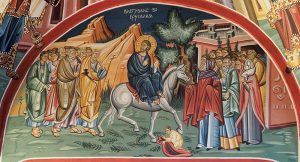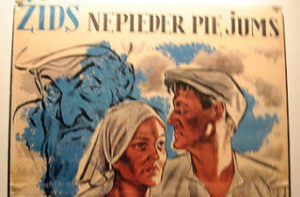While in Kusadasi, Turkey my wife, Renee, and I made a visit to the nearby ruins of Ephesus. It was here in Ephesus, at this chief province of ancient Asia Minor, that the Apostle Paul spent three years ministering to the people during the first century A.D.. During Paul’s day, Ephesus was located approximately one mile from the Aegean Sea and was a great city of banking and commerce. The city was built near the shrine of the fertility goddess Diana (Artemis to the Greeks) and was also a place of pilgrimage for cult worshipers and tourists. Paul’s ministry was so effective in Ephesus that the craftsmen who produced gravened images of Diana actually incited a riot against him because they feared that their trade might become obsolete as multitudes of pagan worshipers turned to Christianity. It was to the saints of this thriving city that Paul sent his famous epistle, Ephesians, while imprisoned in Rome.
My wife and I are experienced travelers and seldom if ever use tour guides. However, on this occasion we booked a private tour as our time was limited and also because it was actually more cost effective than surveying the ruins on our own. As it turned out, the tour was excellent and the highlight of the day was a detail pointed out by the guide that we would have otherwise missed had we explored the ruins on our own.
While trekking down the great marble street of the Arkadiane, which runs from the now dry harbor to the theater, our tour guide pointed to a round hole in one of the marble stones that made up the ancient street and asked if we knew the purpose of the hole. We were so taken by the size and magnitude of the ruins itself that we had not noticed the holes in the pathway. When we replied “no”, she indicated that in ancient times holes were carved in the stone streets of Ephesus at designated intervals. An oil lamp (bowl containing olive oil and a wick) was placed in each hole and lit at dusk. The result was illuminated corridors for the pedestrians traveling the steeply sloping streets at night. The oil lamps served as guidance, direction and a means of safety for the person walking the dark, slippery marble streets of ancient Ephesus. Immediately the words of the psalmist came to my mind, “Thy word is a lamp unto my feet, and a light unto my path”.
Even though David wrote the poetic words of Psalm 119 in the land of Israel many centuries before the Hellenistic city of Ephesus was built in Asia Minor, seeing the holes in the marble streets that had once served as a lighted pathway still brought the biblical passage to life. The beautiful metaphor took on literal meaning to me as I stood there on the steeply sloping, uneven marble stones that were slick and hard to traverse even in the daylight. I realized that these same streets would be nearly impossible to navigate in the dark. For the first time in my life I realized the full depth of the verse. Were it not for the embedded oil lamps, travel after dark in ancient Ephesus would have been difficult if not impossible. The lighted lamps provided illumination for both the near and distant path of the ancient traveler. The near lamp revealed tripping hazards that were within a step or two while the entire row of lamps provided illumination of the general pathway itself.
So it is with us as believers, the Word of God provides guidance for our daily activities as well as direction for the future. How much more difficult it would be for us to navigate the obstacles of life if we did not have the written word to illuminate our way and prevent us from tripping, falling or wandering into wayward paths.
The assertion of the Psalmist rings true for mankind throughout the millenniums regardless of race, era or geographical location. God is calling out to us, beseeching us to come walk with Him; assuring us that His holy word will illuminate our pathway and provide safe passage through the obstacles of life if we will but adhere to His spiritual guidance.




